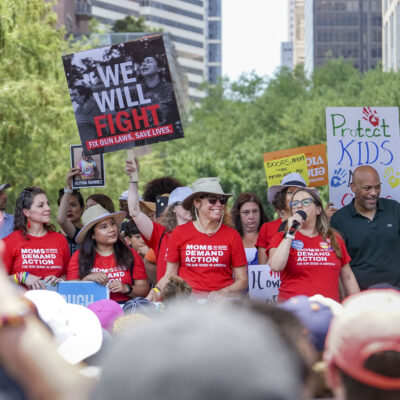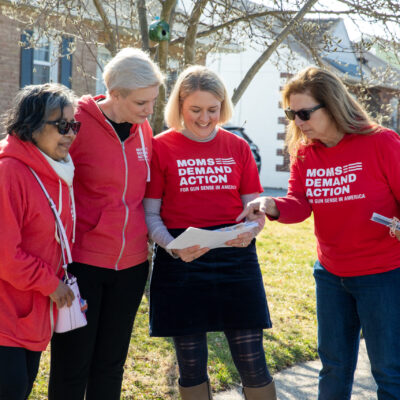Everytown For Gun Safety Seeks to Compel ATF to Release Trace Data Blocked by Gun Lobby
7.23.2015
NEW YORK — Everytown for Gun Safety today filed a lawsuit (available here) in the United States District Court for the Southern District of New York seeking public records on crime guns from the Bureau of Alcohol, Tobacco, Firearms and Explosives (ATF). The complaint was filed under the Freedom of Information Act and seeks public records containing aggregate data on guns recovered from crime scenes nationwide that ATF has successfully traced to their origins. This type of data – which the ATF has previously released – provides unique insights into how criminals acquire firearms and how traffickers move guns across state-lines, and is essential for the study of gun violence.
The National Rifle Association and other gun lobby groups have fought for years to limit access to information related to firearms, including the aggregate trace data sought in this lawsuit. These limitations have repeatedly hampered enforcement of the nation’s gun laws and evaluation of their effects. In 2003, Congress passed the first of a series of NRA-backed measures known as the Tiahrt Amendments, barring ATF from releasing data about individual firearms recovered from crime scenes. But Tiahrt does not prohibit ATF from releasing aggregate trace data, and the agency has previously provided similar aggregate trace data to Mayors Against Illegal Guns, a part of Everytown. That data ultimately made possible extensive analyses and the creation of reports (more information below) documenting patterns of gun trafficking, where crime guns originate and where they are recovered, and how state gun laws help curb or enable the flow of crime guns.
Similar NRA-backed legislation and riders have limited information available for conducting gun background checks, requiring the FBI to destroy records of people on whom background checks are run after 24 hours and limiting the length of time that gun dealers are required to delay their sales to three business days, at which point they can transfer the gun without a completed check. This loophole was highlighted in the recent mass shooting in Charleston, SC, in which a man with a record of illegal drug use, which barred him from possessing guns, was able to buy one from a gun dealer in part because three days had passed and the dealer was allowed to make the sale with an incomplete background check.
STATEMENT FROM ADAM SKAGGS, SENIOR COUNSEL AT EVERYTOWN FOR GUN SAFETY:
“The records we are seeking contain data that can help us learn about how weak laws facilitate gun trafficking and contribute to gun violence, where crime guns come from, and how illegal guns end up in the communities that bear the brunt of gun violence. We have properly gone through the FOIA protocols, and we hope that ATF will release these records, just as they have in the past. Not doing so would unnecessarily put life-saving research on hold.
“We are confident that the court will enforce the law and that ATF will produce these records. A failure to do so would set in place a patently incorrect interpretation of existing law, and frustrate important research. The recent tragedies in Charleston and Chattanooga — like the countless other incidents of gun violence that occur daily — remind us that we must do more to understand the problem of gun violence and how to reduce its deadly toll. The release of these records will be a critical first step.”
Additional Information About Research and Trace Data:
- “Trace the Guns” (found here), a 2010 report from Mayors Against Illegal Guns, now part of Everytown for Gun Safety, used aggregate trace data obtained from the ATF to determine that states with weak gun laws tend to be top suppliers of guns recovered in out-of-state crimes.
- “Access Denied” (found here), a 2013 report from Mayors Against Illegal Guns that chronicled the history of the gun lobby’s efforts to limit access to information about gun violence, with dire consequences for public health and public safety. In particular, it showed how the National Rifle Association persuaded its congressional allies to impose restrictions on how law enforcement use and share trace data, casting a chilling effect on its use.
- Research originally published in a compendium in 2013, in which Mayors Against Illegal Guns researchers partnered with outside scholars to analyze the effects of a Missouri law that repealed the state’s handgun background check system. That analysis showed that the share of firearms traced by law enforcement that had originated in the state (rather than in other states) increased substantially following repeal of the law, and the share of firearms likely to have been trafficked doubled.





